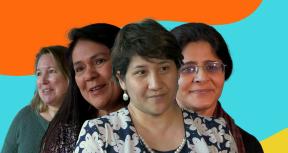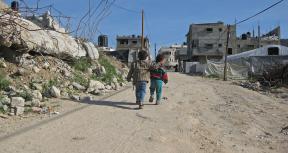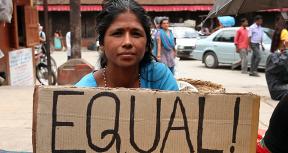Conflict and fragility increase the exposure of women and girls to gender-based violence (GBV) and make it more difficult for them to access social services, including sexual and reproductive health services. Fragility, conflict, and violence (FCV) also exacerbate their vulnerability to poverty and increase their unpaid work burden from their caregiving role. The increase of situations of fragility and conflict in recent years has called the World Bank Group to step up its engagement in these contexts and to adapt its approach to address gender inequalities in FCV countries.
The Bank Group recognizes in many corporate and strategic documents, such as the 2020-2025 FCV strategy, that for Bank Group support to produce meaningful and lasting results toward greater gender equality in FCV countries, it needs to have five specific elements. These elements include relevance, depth, sustainability, scale, and inclusive ownership. The evaluation uses these elements to assess the Bank Group’s country support for women’s and girls’ economic empowerment (WGEE) and GBV prevention and response.
The evaluation analyzes in depth the experiences of six countries (Burkina Faso, Chad, the Democratic Republic of Congo, Lebanon, the Solomon Islands, and the Republic of Yemen) where the World Bank and the International Finance Corporation (IFC) provided support to advance WGEE and address GBV during the past 10 years. The report draws on a combination of in-depth desk review of documents, more than 200 interviews of World Bank and IFC staff, government partners, and national and international stakeholders, and field visits, focus group discussions, and face-to-face interviews in. The evaluation analyzes the factors that enable and constrain meaningful and lasting results in addressing gender inequalities in FCV contexts and offers four recommendations to inform future Bank Group support.
Photo Credit: Beatrice Wanjiku Njoroge, Faces 9.















